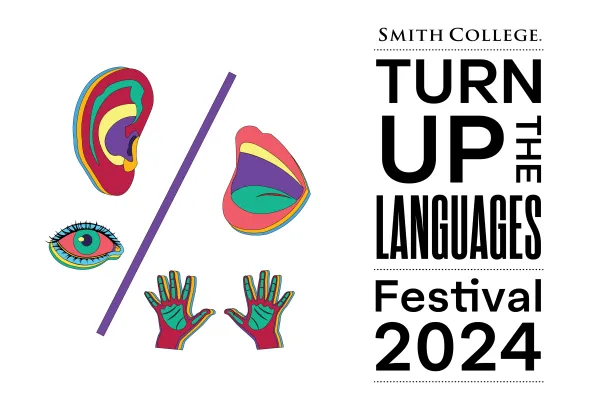Turn Up the Languages Festival
Published August 20, 2024
Exhibits & Displays
“Therapy for Monolinguals”
September 30–October 7, Nolen Art Gallery, Campus Center
An “ear-opening” interactive 15-minute exhibit that invites you to a meditation on your attitude toward languages you do not understand.
Turn Up the IPA Languages!
September 30-October 7, Josten Library for the Performing Arts
A selection of sources for singers to facilitate singing in a range of languages using IPA, a standard written representation for the sounds of speech.
International Graphic Novel Pop-Up Display
October 1–7, Neilson Library 1st Floor, 9:30 a.m. to 4:30 p.m.
Browse the Libraries’ collection of graphic novels in languages other than English. These include a range of subject areas, artistic styles and formats. Some international candy can be sampled too.
Translations: Art that Makes Language Visible
September 30–October 7, Hillyer Art Library
Presented in conjunction with Turn Up the Languages Festival.
